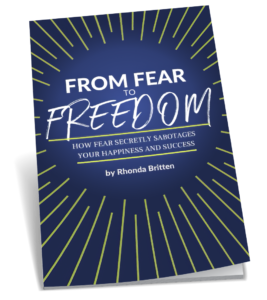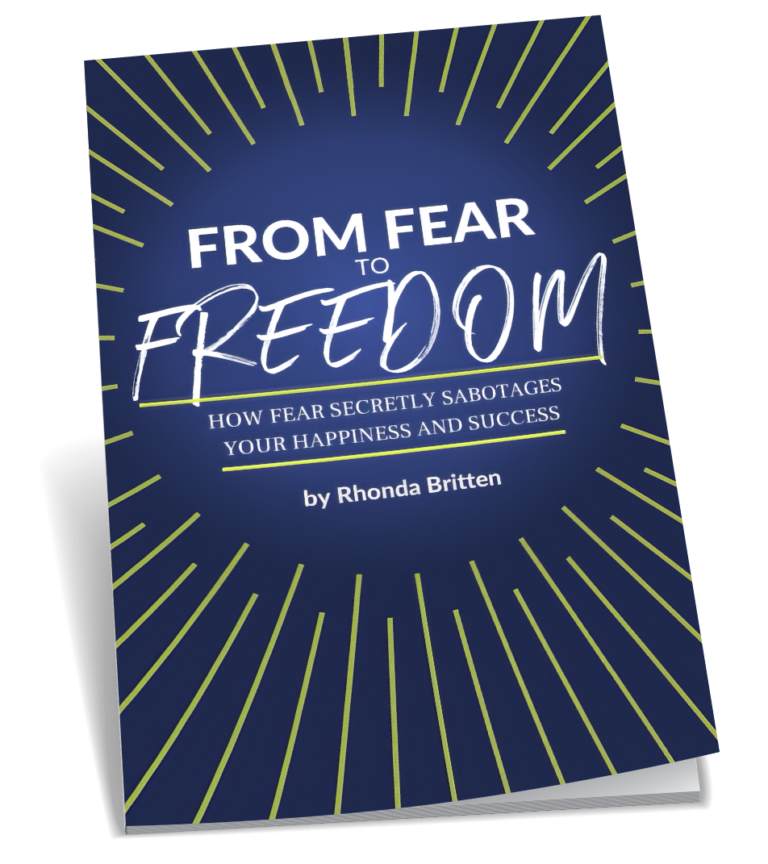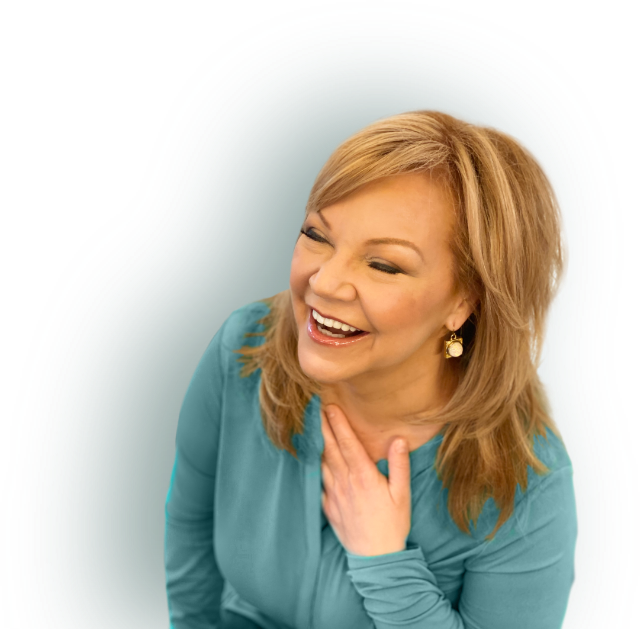Let’s talk about taking risks. How many of you hear the word risk and think: “not good,” “bad,” or “No way, I’m running as fast as I can in the other direction.” Does that sound like you? Or are you someone who sees risks for the opportunities they are?
Welcome back! I’m so glad you’re taking the time to read my articles because the time you spend here with me is an investment in yourself; it shows that you are interested in building yourself a better life! And that is the first step to taking risks.
Today, I’ll discuss how taking risks is actually a good thing—and often a necessary step in reaching your goals and living the life your soul intended™. I’ll also share real-life examples of risks that lead to positive outcomes and strategies to move past the brain's risk-averse instincts.
Is it Good to Take Risks?
Taking risks is not inherently good or bad. It all depends on the type of risk and the circumstances surrounding the risk. But in many cases, taking a risk is the key to increasing your self-confidence and opening you up to more opportunities and experiences.

Of course, there are other times when taking a risk is not in your best interest. Steer clear of risks that could harm other people, and never take a risk that could violate your own personal boundaries or endanger your mental and physical health.
Your own physical and mental safety is paramount, but most of the risks we avoid in life don’t cause this sort of harm. The risks we run away from usually aren't about real physical danger—but they are grounded in fear
Examples are: Fear of making a mistake. Fear of looking silly. Fear of people judging your choices. Fear of failure. Fear of not being good enough. These types of fears are what I call emotional fears.
And, to repeat, not all risks are bad. Heck, I absolutely would not be where I am today if I didn’t take many risks along the way.
Starting my own business was a huge risk! Going into a career that barely existed before I started was a huge risk! Getting my first book published was a huge risk! Opening myself up to love was a huge risk!
Because I know which risks to take (growth) and which ones not to take (harmful), I don't regret any of the risks I've taken, whether I succeeded or failed in the eyes of the outside world. I know I wouldn’t be who I am today or where I am today if I didn’t put myself out there and take risks
Was I scared? You bet. Did taking those risks challenge who I thought I was? Yes. Was taking even the first step towards my goal a risk? Oh, yes.
So, if it worked for me, how can risk taking benefit your life?
How Taking Risks Can Lead You to a Better Life
Remember, risks aren’t all about jumping out of an airplane or betting a month's salary on horse racing or running in front of traffic on a dare. Calculated risks are what help you reach your dreams. Taking calculated risks will help you live the life your soul intended™. Without a little risk, there’s no reward. And that reward is confidence.
Applying for a promotion is a risk. Starting a relationship is a risk. Giving your children freedom to spend time with their friends is a risk. Buying a house with a mortgage is a risk. Trying unfamiliar food is a risk. Publishing a book is a risk.
You get the picture. Life is filled with risks of all shapes and sizes, and if you try to avoid them all, that refusal to take even the smallest risk will slash your self-esteem and perpetuate the belief that you deserve to be stuck. Think of avoiding risks as fear’s way of keeping you off balance, confused, and unsure of yourself. Fear wants to stop you from building the self-confidence it takes to reach your goals and find peace of mind.
Risks move you forward in life. But often, we feel too afraid to take even minor risks. We don’t apply for that promotion out of fear we might not get it. We don’t say “I love you” because the other person might not say it back.
But is it really that big of a risk? I know it feels like a big risk, but ask yourself: what do you really have to lose by believing in yourself, putting yourself out there, and giving yourself a shot?
Rejection? Embarrassment? Failure? That's all fear talking.
When we understand that it’s only fear keeping us from taking worthwhile, calculated risks, we can see the true benefits of taking risks. Risks aren’t something to be feared—risks present possibilities, and they can transform your life into one you are happy and proud to live, not a life that just happens around you.
Learn How To Overcome Fear So It No Longer Controls You.
Taking risks has got me to where I am today, and I want those results for you, too!
Let’s talk about some clear examples of how risks can lead to a better life for yourself.
What are Examples of Taking Risks? (That Lead to Great Rewards)

Anytime you think about risk, weigh the outcomes. What is it that you’re actually risking? What are the true negative consequences? Are you worried about your ego being bruised by embarrassment? Or are you risking something more serious? And what are the rewards? What do you stand to gain by taking a small or big risk?
Often, the rewards that come from taking a risk far outweigh its consequences (i.e., the feelings you’re afraid to feel or what others may think of you.)
Let’s talk about changing careers, for example. Leaving your current career for another one is a risk. What if it doesn’t work out? What if you don’t like it? What if the new people you work with don’t like you? What if you don’t make enough money? What if you FAIL?? 😱
At your current career, you know the ropes. You know what you get paid each month. You know where to park your car. You know what to expect each day. But—and there’s a big BUT—are you happy? Are you fulfilled? Are you content? Are you on fire and filled with passion and purpose each day?
If you go to bed every Sunday night dreading the week ahead, hating your boss, feeling completely underappreciated, and feeling disappointed with where your career has led you, are you really risking that much? In this case, you are already deeply unhappy with where you are. What might seem like a big risk really isn’t a risk at all.
If you change careers, there’s a really good chance you won’t be as unhappy as you are now. But what if you hate your new job too? Well, you’ve now learned a lot along the way, understand yourself better, and are in a better position to pursue something more suited to you. You have far more to gain from making a change in your life than you stand to lose.
So many people who decide to become Life Coaches are in this position. Their job is okay. They can't complain too much. They've put up with their discontent for a long time. But they keep searching for something better, something that’s more aligned with who they really are.
When they discover they can train to be a Certified Fearless Living Coach while still at their current job, they feel hopeful for their future and excited to be learning skills that make a difference in other people’s lives.
The funny thing is when our Coaches graduate from the Life Coach Certification Program, some decide to change the dynamics at their current job and stay right where they are; their job is not the same because they are not the same. Others go on to build a coaching business and, eventually, quit their job.
Here’s another one.
I was working with a client, Helen, who was deeply upset with how she was being treated at work. Her boss would yell at her in front of her coworkers and often say disrespectful things. It was really draining on her. It was hindering her ability to do her best work, and it was beginning to seep into her personal life because every day she went home unhappy and resentful.
What did Helen do? She took a risk. After we role-played what she could say and how to say it, she booked a one-on-one meeting with her boss and explained how she felt using the tools I share in Fearless Conversations for Coaches. She provided clear examples of hurtful things her boss had said to her recently and explained that it was hindering her ability to continue to work for him with pride
After we role-played, she was better prepared for any and all questions her boss could ask, and she was prepared for a plethora of his potential responses. That’s one thing a good Coach does; role-play your most difficult conversations before you ever have them.
What was the risk? Well, there was a chance that her boss might not take it well. That could make it an awkward conversation. What if he started treating Helen even worse in the workplace after it was mentioned? Sure, there are some risks she had to take, but what about the reward? What Helen stood to gain far outweighed the risks. and because she and her Coach role-played, she was steeled against any of the worst possible outcomes.
Bottom line: Helen’s boundaries were being crossed, and that was NOT OKAY. Boundaries are incredibly important in life. Learn more in my article: Why Personal Boundaries Are Important and How to Develop Them.
Helen was clear about her boundaries when she spoke to her boss. And what happened?
Helen’s boss listened, but didn't talk much. She admitted she was nervous about going to work the next day. But after that meeting, things changed. She wasn’t talked down to anymore at work. In fact, her boss began to seek her advice on important business decisions, believing Helen was someone who would tell it to him straight—because that was exactly what she did when she spoke up and stood up for herself.
And the big kicker? A few months later, Helen got a promotion. Her boss looked at her differently after that conversation. He had more respect for Helen and saw her as a leader, not just someone who could be pushed around.
“But Rhonda… What if that story didn’t go well? What if the worst that could happen did actually happen?”
Helen took a calculated risk. Before going into that meeting, Helen knew the risks, but she was willing to take them because her dignity, boundaries, and happiness were more important. If that meeting didn’t go well, she would know it was a sign that, as much as she loved her co-workers and the work she did, she couldn’t stay there. She would always be degraded and humiliated at work, and that was not a future she wanted.
Let’s dig into one more example.
Anyone here afraid of saying “I love you?” Anyone ever said “I love you” to someone only to have them not say it back? Maybe that person couldn’t bring themselves to say it, or even worse, maybe they didn’t feel the same way about you.
Saying “I love you” and being open to love is a risk, but I’d argue it’s a pretty darn worthwhile risk to take. If you never take that risk, you won’t be open to love, and you’ll have a pretty tough time finding it. Even if you do find love, your partner will never truly feel your love if you are always holding something back out of a fear of rejection.
Love is one area in life that most of us can agree is worth taking a risk for. Relationships always have some risks involved, but the risks are worth taking if the reward could be lifelong love and commitment with a partner who values you as much as you value them.
So, how do we feel about risks now?
How Do You Take Risks? What’s the First Step?
It’s time to step outside of your comfort zone. Don’t do it for me, your family, or your friends—do it for you. Be a risk taker; you are the only person that can properly prioritize your own physical, mental, and emotional wellbeing.
What’s the first step? My 10-week Fearless Living Training Program is based on decades of learning how to crack the secret code to fear, including the fears that keep you from taking the kind of calculated risks that will lead to a better life.
With Fearless Living, you’ll learn how to identify your own needs, set boundaries, and tolerate uncertainty. Our community is passionate about building confidence through self-examination, willingness, and courage.
Sign up today! What are you really risking?
Let’s talk about taking risks. How many of you hear the word risk and think: “not good,” “bad,” or “No way, I’m running as fast as I can in the other direction.” Does that sound like you? Or are you someone who sees risks for the opportunities they are?
Welcome back! I’m so glad you’re taking the time to read my articles because the time you spend here with me is an investment in yourself; it shows that you are interested in building yourself a better life! And that is the first step to taking risks.
Today, I’ll discuss how taking risks is actually a good thing—and often a necessary step in reaching your goals and living the life your soul intended™. I’ll also share real-life examples of risks that lead to positive outcomes and strategies to move past the brain's risk-averse instincts.
Is it Good to Take Risks?
Taking risks is not inherently good or bad. It all depends on the type of risk and the circumstances surrounding the risk. But in many cases, taking a risk is the key to increasing your self-confidence and opening you up to more opportunities and experiences.

Of course, there are other times when taking a risk is not in your best interest. Steer clear of risks that could harm other people, and never take a risk that could violate your own personal boundaries or endanger your mental and physical health.
Your own physical and mental safety is paramount, but most of the risks we avoid in life don’t cause this sort of harm. The risks we run away from usually aren't about real physical danger—but they are grounded in fear
Examples are: Fear of making a mistake. Fear of looking silly. Fear of people judging your choices. Fear of failure. Fear of not being good enough. These types of fears are what I call emotional fears.
And, to repeat, not all risks are bad. Heck, I absolutely would not be where I am today if I didn’t take many risks along the way.
Starting my own business was a huge risk! Going into a career that barely existed before I started was a huge risk! Getting my first book published was a huge risk! Opening myself up to love was a huge risk!
Because I know which risks to take (growth) and which ones not to take (harmful), I don't regret any of the risks I've taken, whether I succeeded or failed in the eyes of the outside world. I know I wouldn’t be who I am today or where I am today if I didn’t put myself out there and take risks
Was I scared? You bet. Did taking those risks challenge who I thought I was? Yes. Was taking even the first step towards my goal a risk? Oh, yes.
So, if it worked for me, how can risk taking benefit your life?
How Taking Risks Can Lead You to a Better Life
Remember, risks aren’t all about jumping out of an airplane or betting a month's salary on horse racing or running in front of traffic on a dare. Calculated risks are what help you reach your dreams. Taking calculated risks will help you live the life your soul intended™. Without a little risk, there’s no reward. And that reward is confidence.
Applying for a promotion is a risk. Starting a relationship is a risk. Giving your children freedom to spend time with their friends is a risk. Buying a house with a mortgage is a risk. Trying unfamiliar food is a risk. Publishing a book is a risk.
You get the picture. Life is filled with risks of all shapes and sizes, and if you try to avoid them all, that refusal to take even the smallest risk will slash your self-esteem and perpetuate the belief that you deserve to be stuck. Think of avoiding risks as fear’s way of keeping you off balance, confused, and unsure of yourself. Fear wants to stop you from building the self-confidence it takes to reach your goals and find peace of mind.
Risks move you forward in life. But often, we feel too afraid to take even minor risks. We don’t apply for that promotion out of fear we might not get it. We don’t say “I love you” because the other person might not say it back.
But is it really that big of a risk? I know it feels like a big risk, but ask yourself: what do you really have to lose by believing in yourself, putting yourself out there, and giving yourself a shot?
Rejection? Embarrassment? Failure? That's all fear talking.
When we understand that it’s only fear keeping us from taking worthwhile, calculated risks, we can see the true benefits of taking risks. Risks aren’t something to be feared—risks present possibilities, and they can transform your life into one you are happy and proud to live, not a life that just happens around you.
Learn How To Overcome Fear So It No Longer Controls You.
Taking risks has got me to where I am today, and I want those results for you, too!
Let’s talk about some clear examples of how risks can lead to a better life for yourself.
What are Examples of Taking Risks? (That Lead to Great Rewards)

Anytime you think about risk, weigh the outcomes. What is it that you’re actually risking? What are the true negative consequences? Are you worried about your ego being bruised by embarrassment? Or are you risking something more serious? And what are the rewards? What do you stand to gain by taking a small or big risk?
Often, the rewards that come from taking a risk far outweigh its consequences (i.e., the feelings you’re afraid to feel or what others may think of you.)
Let’s talk about changing careers, for example. Leaving your current career for another one is a risk. What if it doesn’t work out? What if you don’t like it? What if the new people you work with don’t like you? What if you don’t make enough money? What if you FAIL?? 😱
At your current career, you know the ropes. You know what you get paid each month. You know where to park your car. You know what to expect each day. But—and there’s a big BUT—are you happy? Are you fulfilled? Are you content? Are you on fire and filled with passion and purpose each day?
If you go to bed every Sunday night dreading the week ahead, hating your boss, feeling completely underappreciated, and feeling disappointed with where your career has led you, are you really risking that much? In this case, you are already deeply unhappy with where you are. What might seem like a big risk really isn’t a risk at all.
If you change careers, there’s a really good chance you won’t be as unhappy as you are now. But what if you hate your new job too? Well, you’ve now learned a lot along the way, understand yourself better, and are in a better position to pursue something more suited to you. You have far more to gain from making a change in your life than you stand to lose.
So many people who decide to become Life Coaches are in this position. Their job is okay. They can't complain too much. They've put up with their discontent for a long time. But they keep searching for something better, something that’s more aligned with who they really are.
When they discover they can train to be a Certified Fearless Living Coach while still at their current job, they feel hopeful for their future and excited to be learning skills that make a difference in other people’s lives.
The funny thing is when our Coaches graduate from the Life Coach Certification Program, some decide to change the dynamics at their current job and stay right where they are; their job is not the same because they are not the same. Others go on to build a coaching business and, eventually, quit their job.
Here’s another one.
I was working with a client, Helen, who was deeply upset with how she was being treated at work. Her boss would yell at her in front of her coworkers and often say disrespectful things. It was really draining on her. It was hindering her ability to do her best work, and it was beginning to seep into her personal life because every day she went home unhappy and resentful.
What did Helen do? She took a risk. After we role-played what she could say and how to say it, she booked a one-on-one meeting with her boss and explained how she felt using the tools I share in Fearless Conversations for Coaches. She provided clear examples of hurtful things her boss had said to her recently and explained that it was hindering her ability to continue to work for him with pride
After we role-played, she was better prepared for any and all questions her boss could ask, and she was prepared for a plethora of his potential responses. That’s one thing a good Coach does; role-play your most difficult conversations before you ever have them.
What was the risk? Well, there was a chance that her boss might not take it well. That could make it an awkward conversation. What if he started treating Helen even worse in the workplace after it was mentioned? Sure, there are some risks she had to take, but what about the reward? What Helen stood to gain far outweighed the risks. and because she and her Coach role-played, she was steeled against any of the worst possible outcomes.
Bottom line: Helen’s boundaries were being crossed, and that was NOT OKAY. Boundaries are incredibly important in life. Learn more in my article: Why Personal Boundaries Are Important and How to Develop Them.
Helen was clear about her boundaries when she spoke to her boss. And what happened?
Helen’s boss listened, but didn't talk much. She admitted she was nervous about going to work the next day. But after that meeting, things changed. She wasn’t talked down to anymore at work. In fact, her boss began to seek her advice on important business decisions, believing Helen was someone who would tell it to him straight—because that was exactly what she did when she spoke up and stood up for herself.
And the big kicker? A few months later, Helen got a promotion. Her boss looked at her differently after that conversation. He had more respect for Helen and saw her as a leader, not just someone who could be pushed around.
“But Rhonda… What if that story didn’t go well? What if the worst that could happen did actually happen?”
Helen took a calculated risk. Before going into that meeting, Helen knew the risks, but she was willing to take them because her dignity, boundaries, and happiness were more important. If that meeting didn’t go well, she would know it was a sign that, as much as she loved her co-workers and the work she did, she couldn’t stay there. She would always be degraded and humiliated at work, and that was not a future she wanted.
Let’s dig into one more example.
Anyone here afraid of saying “I love you?” Anyone ever said “I love you” to someone only to have them not say it back? Maybe that person couldn’t bring themselves to say it, or even worse, maybe they didn’t feel the same way about you.
Saying “I love you” and being open to love is a risk, but I’d argue it’s a pretty darn worthwhile risk to take. If you never take that risk, you won’t be open to love, and you’ll have a pretty tough time finding it. Even if you do find love, your partner will never truly feel your love if you are always holding something back out of a fear of rejection.
Love is one area in life that most of us can agree is worth taking a risk for. Relationships always have some risks involved, but the risks are worth taking if the reward could be lifelong love and commitment with a partner who values you as much as you value them.
So, how do we feel about risks now?
How Do You Take Risks? What’s the First Step?
It’s time to step outside of your comfort zone. Don’t do it for me, your family, or your friends—do it for you. Be a risk taker; you are the only person that can properly prioritize your own physical, mental, and emotional wellbeing.
What’s the first step? My 10-week Fearless Living Training Program is based on decades of learning how to crack the secret code to fear, including the fears that keep you from taking the kind of calculated risks that will lead to a better life.
With Fearless Living, you’ll learn how to identify your own needs, set boundaries, and tolerate uncertainty. Our community is passionate about building confidence through self-examination, willingness, and courage.
Sign up today! What are you really risking?







